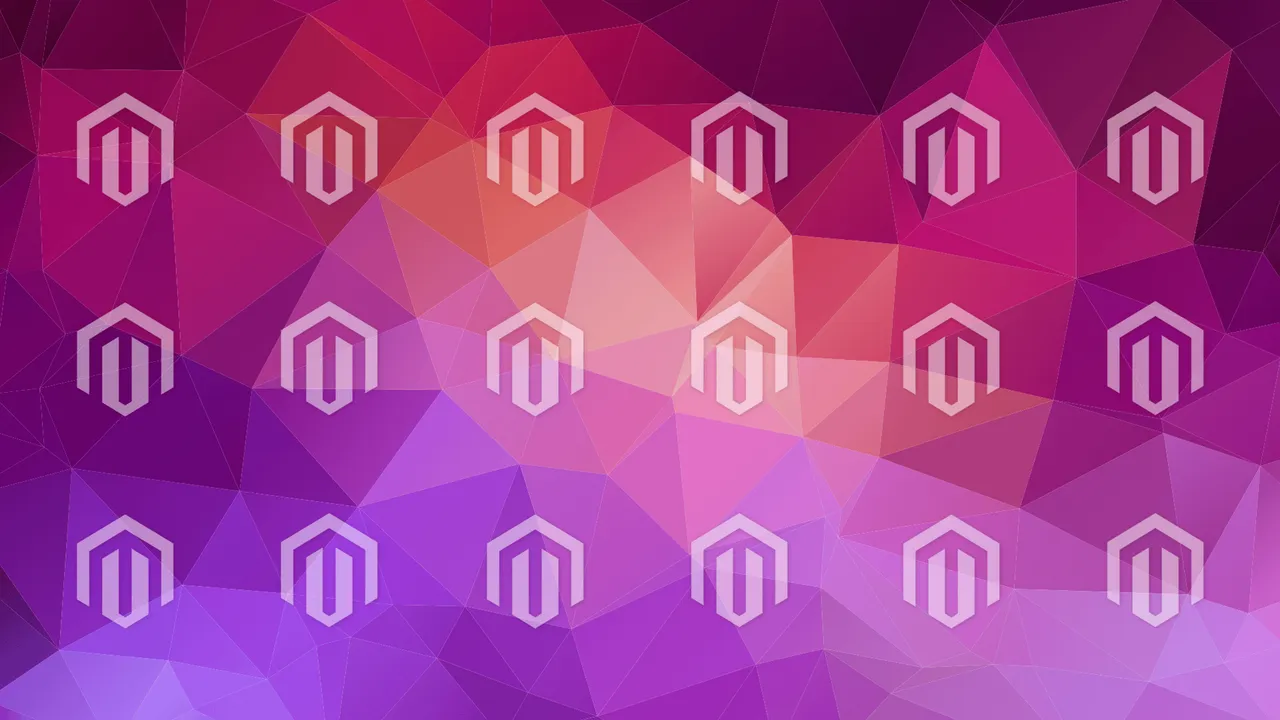Ecommerce CMS: an end-to-end solution overview & top platforms
As ecommerce businesses scale, content management becomes a strategic capability. What starts with simple product descriptions and promotional banners quickly evolves into complex, omnichannel content ecosystems requiring rapid updates, localization, and cross-functional collaboration. Traditional built-in editors and rigid page templates fall short of supporting these demands.
To remain competitive, ecommerce companies need more than basic content tools—they require flexible, scalable content management systems (CMSs) that support brand consistency, accelerate time to market, and reduce reliance on developers for every update.
This article explains how ecommerce CMSs enable content operations and how these solutions differ from ecommerce platforms, as well as reviews some of the leading CMSs used by digital retailers today.
Ecommerce CMS explained
An ecommerce CMS is software that allows non-technical users to create, update, and manage digital content across the storefront. It supports various operations, from publishing blog articles to updating product descriptions and launching landing pages, with no coding required. To ensure seamless operation across content and commerce workflows, implementing such systems requires dedicated ecommerce development expertise.
Ecommerce CMS vs ecommerce platform
Ecommerce platforms are built to manage commerce operations, including product listing, transactions, shipping, and order management. While they can offer CMS features, their content management capabilities are often limited in scope.
In contrast, a dedicated ecommerce CMS is purpose-built for managing and delivering SEO-friendly digital content, such as pages, media, and navigation structures. It supports rich content modeling, multilingual versions, content scheduling, and omnichannel publishing. Robust CMS capabilities enable content teams to work in parallel, ensuring fast, coordinated updates across the store while maintaining brand consistency and optimizing the website for search engines.
If you’re looking to introduce content management capabilities into your online store, there are several approaches:
An all-in-one ecommerce platform with built-in content tools
Many ecommerce platforms now offer built-in CMS tools or content modules, e.g., Page Builder for Magento (Adobe Commerce). This approach works well for businesses whose content management needs are rather common and can be met by what’s provided out of the box without requiring separate systems.
A CMS with ecommerce plugins
In this model, brands build their stores on a CMS like WordPress or Drupal by adding commerce functionality via plugins like WooCommerce or Drupal Commerce. This approach enables teams to craft rich content experiences, such as detailed product pages or blogs, while managing content and ecommerce operations from a single system. However, it can require more hands-on maintenance efforts as ecommerce operations scale.
A separate CMS and an ecommerce platform
For maximum flexibility, businesses can use standalone CMS and ecommerce platforms connected via APIs or other integration methods. This setup allows teams to use best-suited tools for content and commerce management workflows, making it easier to handle multilingual sites and channel-specific experiences. It’s especially beneficial for brands operating across multiple markets or managing frequent content updates at scale.
Types of CMSs
- Software as a Service (SaaS) CMS
These are cloud-based platforms maintained by the vendor, who handles server setup, software updates, security patches, and performance scaling. SaaS CMSs are ideal for businesses that prioritize rapid deployment and want to avoid the costs and complexities of self-hosting. They include built-in scalability, allowing content operations to expand seamlessly in line with traffic and business needs.
- Open-source CMS
Open-source systems provide development teams with access to the source code, allowing for deep customization, custom integrations, and tailored functionality development. While they require more technical effort to set up and manage, they are free from licensing fees and have active developer communities. Open-source platforms are well-suited for businesses that prioritize flexibility and full control over system functionality.
Key features to look for in an ecommerce CMS
CMSs vary widely in terms of their feature sets. So, when comparing different solutions, prioritize those that offer the following core ecommerce capabilities.
Content & media management
A CMS should facilitate the management of content and visual assets from a centralized interface. Look for a platform that allows you to build standardized content blocks, organize digital assets into libraries, and tag, version, or reuse media across multiple pages and channels.
Ease of use
A user-friendly ecommerce CMS should offer an intuitive interface with drag-and-drop editing and clear navigation so that even beginners without technical expertise can manage product pages, upload images, and update content without touching HTML or CSS. From a developer standpoint, the platform should include comprehensive API access, customizable templating, and support for custom frontends, allowing professionals to tailor the CMS without relying on workarounds.
SEO & marketing support
Built-in SEO tools help ensure that your content ranks well in search results. Features to look for include editable meta titles and meta descriptions, customizable URLs, clean HTML output, alt text for images, canonical tags, and automated sitemap generation.
Support for structured data markup, open graph tags, and social previews is equally important for visibility across Google and social platforms. To support omnichannel marketing, your CMS should also facilitate the management and distribution of content across your site, mobile apps, marketplaces, and other digital touchpoints, ensuring a unified brand experience.
Integration & extensibility
Your ecommerce CMS should integrate easily with the rest of your tech stack, including an ecommerce platform, as well as CRM, product information management (PIM), digital asset management (DAM), marketing automation, and analytics software. Support for APIs, webhooks, and pre-built connectors allows you to easily integrate new features and third-party services with your CMS. Whether you want to add a personalization engine, plug in a localization service, or connect a headless storefront, your CMS should be flexible enough to allow it.
Customization
Your CMS should offer versatile customization options for building custom functionality, integrations, and localized experiences. Look for features like visual template editors, reusable content blocks, and responsive design tools to be able to create a positive user experience. Functional customization options, such as customizable components, flexible page structures, and the ability to adjust backend logic, allow you to adapt the CMS to your business needs. For global operations, localization support, like language variants, regional content, and market-specific promotions, is essential for tailoring experiences to different user groups.
Performance & scalability
Unstable CMS performance leads to frustratingly slow page load times and website unresponsiveness. Choose a platform that supports high-speed content delivery, image compression without compromising quality, and content caching for quicker loading upon subsequent page visits.
As your business expands and user engagement increases, your CMS should be able to handle more content, users, and integrations without performance bottlenecks. A modular or API-first architecture often helps here, allowing you to scale components independently. Additionally, consider platforms offering built-in load balancing, content delivery network (CDN) integration, and support for asynchronous processing to further enhance scalability and reliability.
Streamline content operations with the right ecommerce CMS
Best ecommerce CMS platforms
In ecommerce, the right CMS can significantly impact how well your business scales, adapt to market shifts, and deliver diverse, high-volume content across the entire purchase journey. Here, we explore top-performing CMSs for ecommerce, along with ecommerce platforms that support advanced content management. These solutions are featured in the latest Gartner® Magic Quadrant™ for Digital Commerce and are frequently referenced by industry analysts.
Salesforce CMS

Salesforce CMS interface
Salesforce CMS is a hybrid content management system that enables content management across all digital touchpoints. It supports omnichannel publishing, connects directly with Salesforce’s CRM, and allows businesses to deliver highly personalized ecommerce experiences at scale.
Type: CMS suitable for ecommerce use
Core capabilities:
- Centralized content creation and reuse across multiple channels, such as web, email, customer portals, and mobile apps
- Provides native API support for headless CMS architecture
- Role-based CMS workspaces with granular permission control
- Visual, drag-and-drop editing via Experience Builder and Commerce Page Designer
- Support for managing content in multiple languages, including workflows for translation and localization
- Organized management of content through dynamic grouping, tagging, and classification
- Direct access to CRM data for content personalization and segmentation
Pricing:
Salesforce CMS is included with limited features in most Salesforce Enterprise, Performance, Unlimited, and Developer Editions. Access to the full suite of CMS capabilities requires an Experience Cloud subscription, including Customer Community, Customer Community Plus, Partner Community, or Channel Account licenses.
Shopify

Shopify interface
Shopify is an all-in-one ecommerce platform designed to help businesses of any size create, customize, and efficiently manage their online stores. Its user-friendly interface, extensive app store, and built-in ecommerce functionality make it a trusted solution for launching ecommerce websites.
Type: Ecommerce platform with CMS features
Core capabilities:
- AI-assisted store builder that auto-generates layouts and product descriptions
- Customizable themes and visual content editing
- Native integration with over 100 payment gateways, including PayPal, Stripe, and Authorize.net
- Built-in SEO tools, as well as blog and content marketing features
- Omnichannel commerce capabilities, enabling sales across web, mobile, social media, marketplaces, and physical retail
- Custom pricing by country or region, with support for selling in multiple currencies
- Detailed analytics dashboards, financial reports, and customer behavior tracking
- Integrated blog and content marketing tools
- Full suite of APIs, SDKs, and developer tools for building custom storefronts
Pricing:
Shopify provides a range of plans, from the Starter plan for social selling to the Basic and Grow plans with advanced reporting and international selling features. The Retail plan is designed for businesses with physical stores and includes tools for managing staff, inventory, and customers, along with a simplified online storefront. Enterprise-level needs are met by Shopify Plus, which offers B2B tools and extensive support for multi-location and multi-market operations. Meanwhile, Commerce Components provides modular APIs for custom infrastructure development.
Adobe Experience Manager Sites
Adobe Experience Manager Sites is an enterprise-grade content management system that helps organizations build high-performing digital experiences across websites and apps.
Type: CMS suitable for ecommerce use
Core capabilities:
- Omnichannel content delivery, supporting web, app, and social media channels
- Performance optimization features for improved loading times
- Document-based webpage creation via Google Docs or Word and visual editing
- Integration with Adobe’s digital asset management (DAM) solution to access brand assets
- Centralized management of multilingual and multi-site content with localized control and reusable templates
- Real-user monitoring for analyzing user interactions and website performance
- Audience targeting using rules-based segmentation, geolocation, and behavioral data
- Generative AI tools for copy and image creation tailored to brand tone and audience segments
- Robust developer environment with API-first, hybrid, and headless architecture and support for modern frameworks
Pricing:
Adobe Experience Manager Sites offers a core CMS, complemented by various add-ons for commerce integrations, learning management, app development, and industry-specific compliance. Pricing is not publicly disclosed.
BigCommerce

BigCommerce interface
BigCommerce is a fully hosted ecommerce solution suited for fast-scaling online businesses. It combines SaaS convenience with open APIs and headless capabilities, allowing extensive customization without requiring merchants to manage hosting, security, or platform maintenance.
Type: Ecommerce platform with CMS features
Core capabilities:
- Visual store development with drag-and-drop page builders, theme templates, and a composable storefront framework for flexible design
- Seamless integration with headless CMS tools like Contentful, Contentstack, and WordPress
- Centralized management of product catalogs, inventory, and storefronts across multiple sales channels and regions
- Customizable SEO-friendly URLs, metadata, and auto-generated XML sitemaps to enhance content discoverability
- Support for multi-currency, multi-language storefronts, and localized catalogs
- Extensive API access and open-source extensions to integrate with third-party systems and extract content from them for a unified digital experience
- Real-time reporting and analytics for critical metrics on orders, customer data, and marketing performance
Pricing:
BigCommerce offers Standard, Plus, and Pro plans that include essential ecommerce features and advanced functionality, such as customer segmentation, abandoned shopping cart recovery, and product filtering. For high-volume or B2B businesses, the Enterprise plan provides custom pricing, robust API limits, and personalized onboarding and support.
OpenCart

OpenCart interface
OpenCart is an open-source ecommerce platform, giving merchants complete control over their online store’s functionality, design, and content. It supports basic content management and offers a marketplace with thousands of themes and extensions, enabling merchants to customize their ecommerce presence across channels and add advanced content features such as blogs.
Type: Ecommerce platform with CMS features
Core capabilities:
- Unlimited products and categories, as well as support for product variants, such as size, color, and custom attributes
- Support for article publishing and category-based content organization for blogs or static pages
- Multi-store and multi-language support, allowing for content, pricing, and design adaptation to regional markets
- Comprehensive out-of-the-box payment and shipping integrations, including PayPal, Stripe, UPS, USPS, and FedEx
- SEO optimization features
- Reporting and analytics capabilities providing insights into product performance, sales metrics, and viewed product reports
- Extension-ready, modular architecture, with 13,000+ modules and mobile-responsive themes available via the OpenCart Marketplace, as well as an Extension Installer for simple store upgrades and new features
Pricing:
The core OpenCart platform is free. However, extended functionality is available through paid third-party extensions, with prices varying depending on the vendor and the complexity of the feature.
Wix

Wix interface
Wix is a flexible website builder that caters to both general-purpose site creation and industry-specific business needs through integrated booking, ecommerce, and content tools.
Type: Website builder with integrated CMS and ecommerce capabilities
Core capabilities:
- Drag-and-drop builder, 900+ website templates, and multimedia galleries
- Integrated scheduling for events, enabling businesses to manage and promote various types of online or in-person events directly from their site
- Online commerce support, loyalty programs capabilities, mobile POS availability, and support for diverse payment methods, including tap-to-pay
- Blog management features and quizzes for boosting customer engagement
- Blog monetization capability via subscriptions, memberships, or one-time payments
- AI-enabled website content, email, logo, image, and metadata generation
- Marketing and SEO tools, including email campaign creation, marketing campaign analytics, and site integration with Instagram feed, Facebook and Instagram ads, and Google Analytics
- The ability to oversee and manage multiple websites or online stores from a single Wix account or dashboard
- Custom app development, GitHub integration, and open APIs
Pricing:
Wix offers a free plan for basic site creation, along with several paid plans. These include the Light plan for personal use, the Core plan with ecommerce features, the Business plan with advanced marketing and sales tools, and the Business Elite plan with unlimited storage and scalability support. All premium plans include a free domain, multi-cloud hosting, AI tools, 24/7 support, and a 14-day money-back guarantee.
PrestaShop

PrestaShop interface
PrestaShop is an ecommerce solution that allows businesses to create, manage, and grow their ecommerce stores. It’s available as a self-hosted open-source solution, offering extensive customization capabilities and full ownership and control over the store’s codebase, data, and hosting environment, as well as a managed and hosted solution for those prioritizing ease of management.
Type: Ecommerce platform with CMS features
Core capabilities:
- Unlimited products and employee accounts
- An all-in-one payment solution, PrestaShop Checkout (built with PayPal), supporting numerous currencies and global sales
- Marketing and sales automation tools, with additional modules for email automation and real-time KPI tracking
- SEO features like customizable URLs, meta tags, and sitemaps
- Customer segmentation capabilities for personalizing discounts and content
- PrestaShop Legal Assistant for GDPR compliance, cookie management, and VAT calculation
- A marketplace offering specialized add-ons, including blog modules, advanced analytics, social commerce integrations (e.g., TikTok, Meta), accessibility tools, inventory management features, and gift cards
- A catalog of themes and theme customization capabilities
- An active global community, a Help Center,� PrestaShop Academy video tutorials, and dedicated support options across tiers
Pricing:
PrestaShop offers a free download of its core software, with costs for hosting and domain name incurred separately. It also provides a subscription-based Hosted offer with included hosting and support services. Large companies can opt for a custom-priced Enterprise plan with enhanced performance and features.
Squarespace
Squarespace is a robust platform for creating visually appealing ecommerce sites, portfolios, and blogs, offering design flexibility, ease of use, and extensive content, commerce, and marketing capabilities.
Type: Website builder with integrated CMS and ecommerce capabilities
Core capabilities:
- Out-of-the-box website templates, a drag-and-drop editor, flexible layouts, and advanced visual tools, including animations, video banners, and custom fonts
- AI-powered features for generating website layouts, copy for site pages and emails, product descriptions, logos, SEO reports, and business or domain names and optimizing SEO metadata
- Central asset library for managing digital content, including photos, videos, and documents
- Integrated email campaigns, social media selling tools, promo banners, and structured data with auto-generated sitemaps
- Analytics for traffic, sales, conversions, and campaign performance across desktop and mobile platforms
- Responsive design engine that automatically optimizes all site layouts and media for mobile
- Free Secure Sockets Layer (SSL) certificates, multi-user roles, and enterprise-level access controls
- Marketplace of verified third-party extensions for accounting, marketing, and shipping
- Blog support with RSS for easy content syndication to other platforms, Markdown formatting, portfolio templates, and video editing and social content creation capabilities
Pricing:
Squarespace offers multiple subscription tiers, all starting with a 14-day free trial. As you move from the Basic plan to Core, Plus, and Advanced, each tier unlocks more powerful features, such as unlimited contributors, advanced analytics, and deeper customization, while also lowering payment processing and transaction fees.
Wrap-up
Choosing the right ecommerce CMS is essential for delivering engaging, scalable, and content-rich digital shopping experiences. When building an ecommerce presence, you can opt for a CMS with built-in commerce features, implement an ecommerce platform with CMS capabilities, or use a standalone CMS and integrate it with a separate ecommerce system. Whether it’s Magento vs WooCommerce, Shopify, or BigCommerce, the choice depends on your store’s scale, technical resources, and long-term growth strategy.
If you’re looking for the best CMS for ecommerce, we’re here to help you navigate the choice. At Iflexion, we design, develop, and support custom-fit ecommerce CMS solutions that empower teams to manage content efficiently and independently.
Ready to enhance your online store’s content capabilities?













